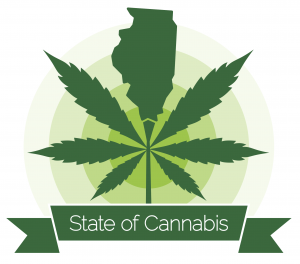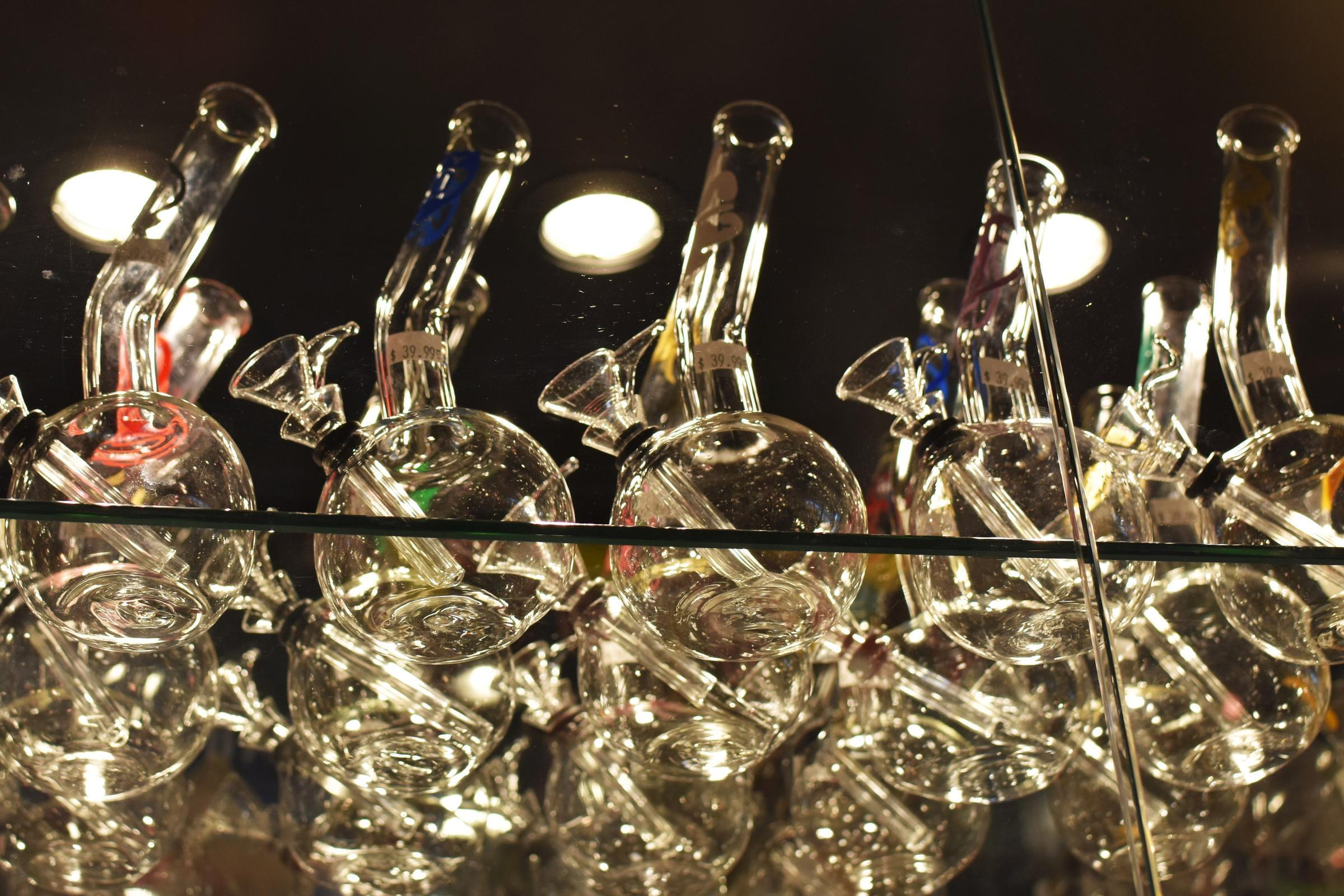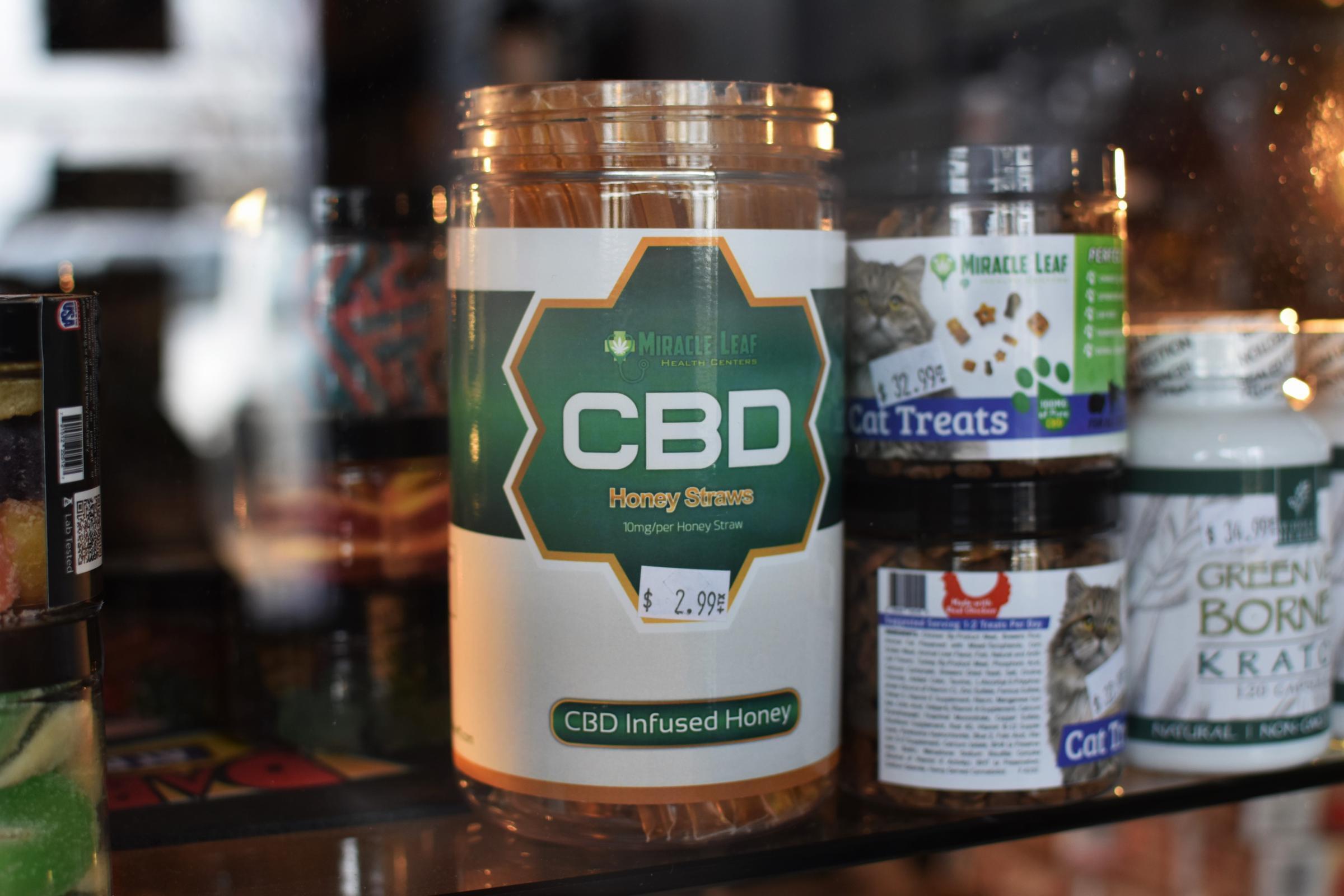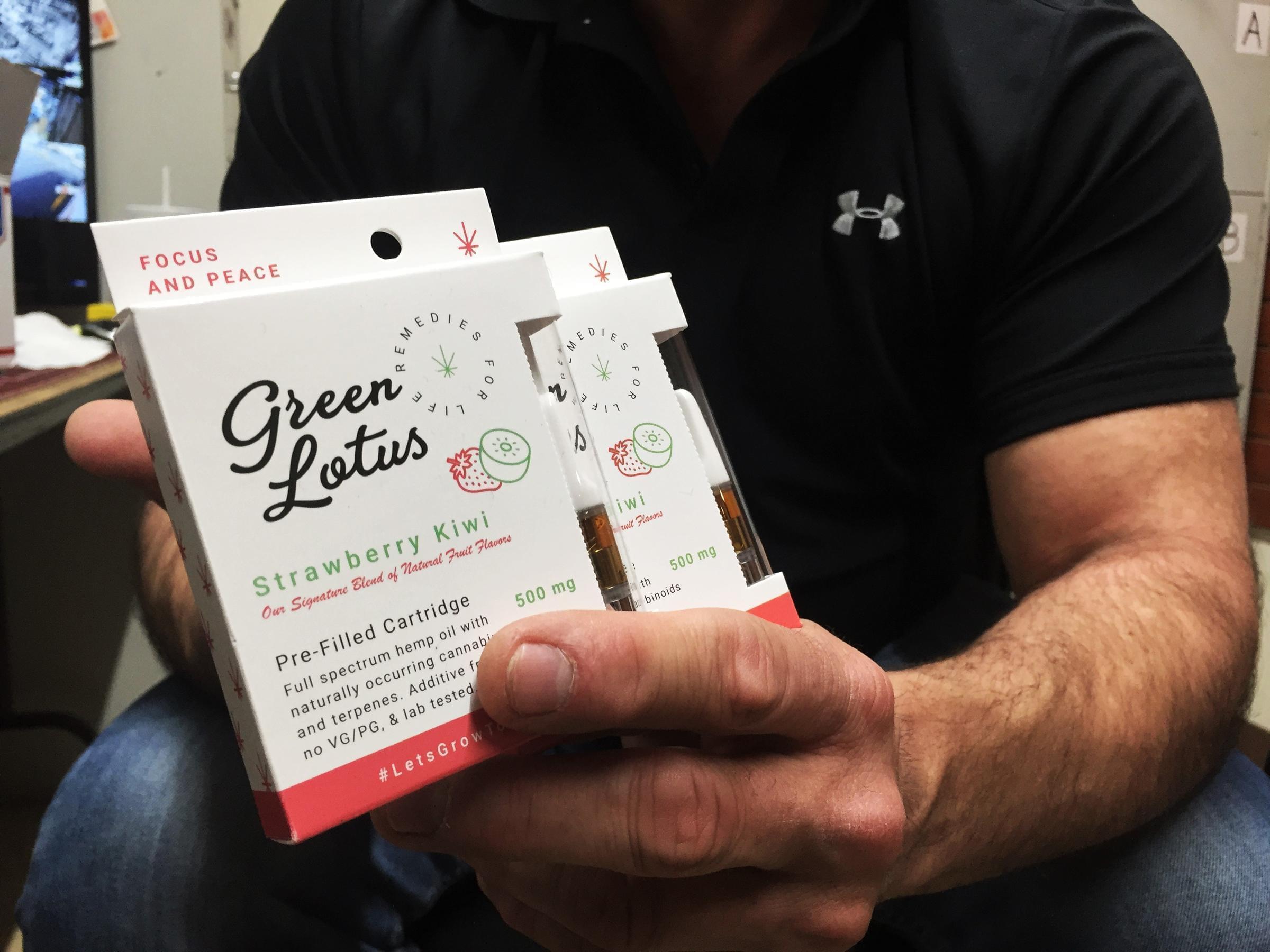CBD Sellers Consider Role In Marijuana Debate
Logan Chase wants his customers to know what they’re smoking.
“If I see something that I've never tried before,” he said, “I take it upon myself to try it.”

This story is part of a weeklong series from Illinois public radio stations focusing on the potential impact of marijuana legalization.
Chase welcomes each person who walks through the doors to shop the well-lit shelves of glass bongs, brand-name grinders and colorful pipes.
“Obviously, all this stuff in here is to use for tobacco products, or your CBD,” said Chase.
CBD is one of the newer items on the menu in DeKalb’s Smoke Shop. CBD is one of the two most prevalent components of the cannabis plant. The other is THC, which widely is referred to as the stuff that gets you high. What customers buy from Chase is legal—a product of the hemp plant.
“So the sister’s illegal and the brother's legal,” said Chase.
Hemp products are legal so long as they have under .3% of THC. CBD products range from lotion and gum to oils used for the health benefits and smokeables.
Under Illinois law, medical cannabis is also legal. But shop owners need to apply for a license and it costs a shop well over $400,000 to go through that process. CBD is different than marijuana but they are derivatives of the same plant. Still, Chase said, from his perspective, it’s too expensive to consider joining the medical market.

Glass bongs sit on the shelves at The Smoke Shop in DeKalb.
“(Smoke shops are) kind of just stuck in the middle of it. We can choose what we want to do. But it depends if you have the funding, the material,” said Chase.
Elijah Olson works in a CBD shop in Chicago. We met in a public library because his shop’s owners were uncomfortable having a reporter enter their store.
Olson’s been working at the CBD shop just under a year. He says the products he sells are made in states where recreational marijuana use is legal. It’s unclear how tight the THC levels are regulated by the time they hit the shelves in Illinois.
Customer feedback is important for Olson, he says. That’s how he’s able to better understand the effects of what’s in the products he sells.
“I think companies need to be transparent and what they're selling and creating, and I don't think most of them truly are right now,” he said.
In the backroom of a place called Galaxy Starship, Tom Allen unboxes fresh CBD oil to add to his shelves. He owns a smoke shop in Sycamore, Illinois.
“We're not going to get into marijuana. We’re heavy into CBD and other herbs, things like that, that can help you naturally,” said Allen.

The Smoke Shop in DeKalb sells CBD sweets like infused honey. Some products have QR codes on the label so customers can look up details on their phone about what exactly is in what their buying.
Allen says he buys his CBD products online to resell ... and says his business strategy speaks for itself: “We just buy everything and we let them decide. And everything I buy I sell.”
Allen says his shop doesn’t test their stock’s THC levels.
“That's why we go with the reputable company,” he said. “That way we make sure that it's pure.”
Customers can buy gas masks and bongs here, too, but Allen says that’s as far as he’ll go in entering the potential marijuana market.
“I think legalizing is a big mistake anyway. I think, you know, I think that they—the drug cartels—still have their network and they're going to bring a lot other, harder drugs down the pipeline once you take that away from them,” he said.
And one of the best ways for illegal dealers to do this is the dark web. Christopher Covelli is a spokesman with the Lake County Sheriff’s Cyber Crime Unit.
“Their ability to remain anonymous certainly is a key factor and a hurdle that we have to move over when investigating these types of crimes,” said Covelli.

Tom Allen holds the CBD oil he just unpackaged after buying the product online.
Covelli says investigations sometimes begin with tips from the post office or community. He notes federal agencies can help smaller police departments if they lack the resources to tackle online crime.
“What the future holds with decriminalization of any drug law, it's yet to be seen,” he said.
But Chase, the CBD seller in DeKalb, doesn’t think illegal markets are going anywhere regardless.
“People are still gonna look for the best price, and if you have that better price, why would they go to somewhere that's legal?”
For now it’s business as usual for shops like these until signed legislation shows what could be in store.
